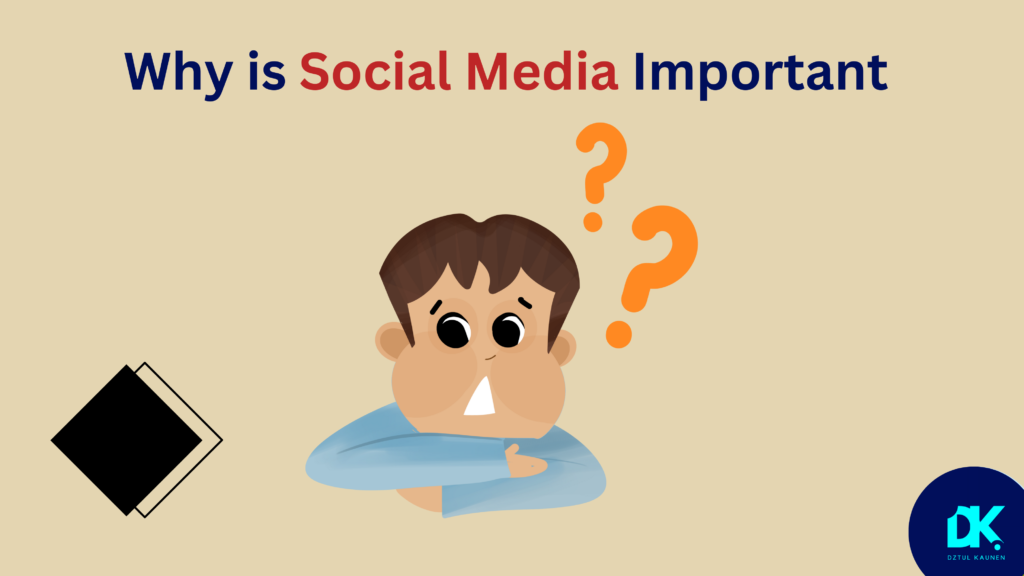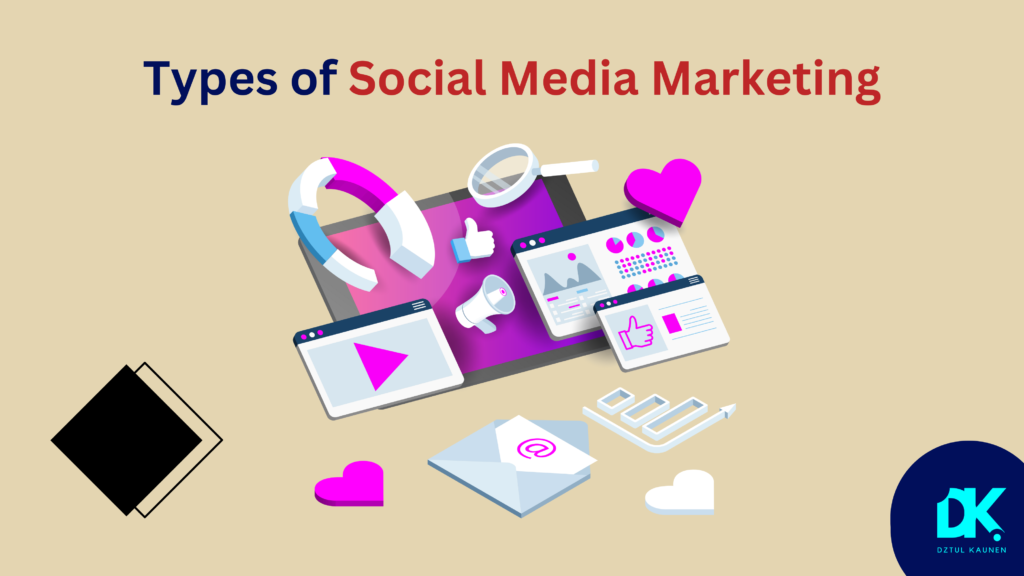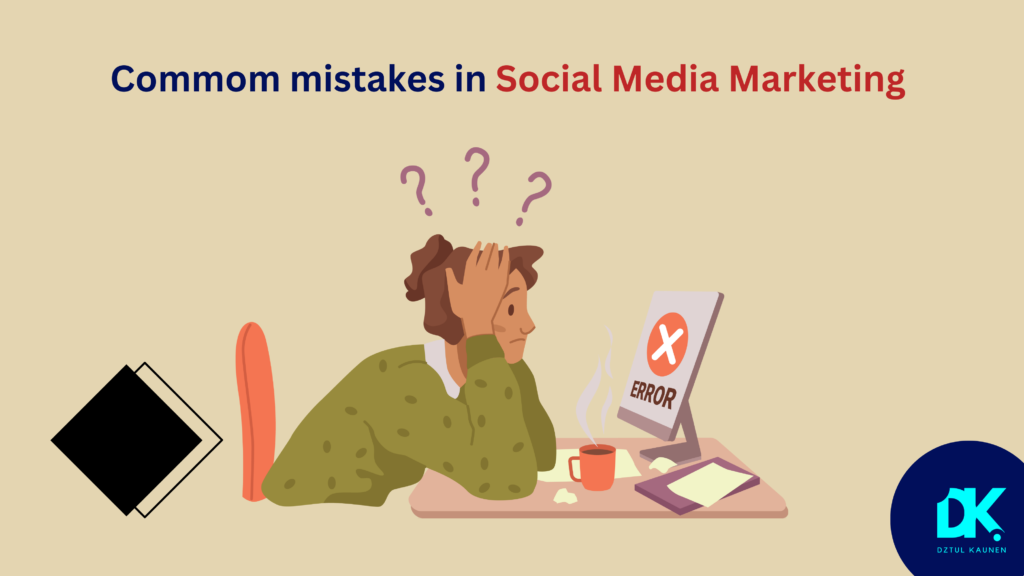Social media marketing is an ever-evolving strategy that has redefined how businesses engage with audiences, promote their services, and build brand credibility. For those wondering what is social media marketing, this comprehensive guide will walk you through its fundamentals, advantages, challenges, and the tools to master it.

Table of Contents
- What is Social Media Marketing?
- Why is Social Media Marketing Important?
- Types of Social Media Marketing
- Benefits of Social Media Marketing
- How to Get Started with Social Media Marketing
- Common Mistakes in Social Media Marketing
- Best Practices for Social Media Marketing Success
- Tools to Enhance Your Social Media Marketing Strategy
- Future Trends in Social Media Marketing
- The Role of Social Media in Customer Service
- The Evolution of Social Media Marketing Strategies
- The Rising Demand for Social Media Marketing Professionals
- Leveraging Social Media for Community Building
- FAQs
- Conclusion
1. What is Social Media Marketing?
At its core, social media marketing involves using social platforms like Facebook, Instagram, LinkedIn, and TikTok to promote products, services, or brand messages. It’s not just about posting content—it’s about creating meaningful conversations, understanding audience preferences, and delivering value.
What is social media marketing in practical terms? It’s the combination of content creation, audience engagement, data analysis, and ad campaigns to reach specific business objectives. The ultimate goal is to foster trust, encourage customer loyalty, and increase conversions. Social media marketing enables businesses to become a part of their audience's daily digital life, forging connections that translate into tangible results.

2. Why is Social Media Marketing Important?
To appreciate its importance, you must understand what is social media marketing and how it empowers businesses to thrive in a digital-first world:
- Global Reach: Social media platforms host billions of users, giving businesses unparalleled access to potential customers worldwide. It levels the playing field for small and large businesses alike.
- Enhanced Brand Awareness: Regular, high-quality posts build a recognizable and trusted brand image, ensuring your business stands out in a crowded marketplace.
- Cost-Effective Advertising: Paid campaigns on social media are often far more affordable and precisely targeted than traditional advertising methods.
- Real-Time Engagement: Direct interaction through comments, likes, and shares allows businesses to engage instantly with their audience, fostering stronger relationships.
- Insights and Analytics: Platforms like Facebook Insights and Instagram Analytics provide valuable data to understand your audience, measure performance, and refine your strategies.

3. Types of Social Media Marketing
Social media marketing encompasses various approaches, tailored to specific objectives:
Content Marketing:
This involves crafting and sharing content that resonates with your audience. From educational blogs to entertaining videos, content marketing focuses on adding value to users' lives.Influencer Marketing:
Partnering with influencers who align with your brand helps you reach their established audiences and build credibility.Paid Advertising:
Targeted ads on platforms like Instagram and LinkedIn enable businesses to reach niche demographics and drive measurable results.Social Media Listening:
Monitoring brand mentions and industry trends allows businesses to address concerns, capitalize on opportunities, and stay relevant.Community Building:
Engaging in two-way conversations and creating exclusive communities help brands foster loyalty and long-term relationships.

4. Benefits of Social Media Marketing
When you dive into what is social media marketing, you’ll uncover numerous benefits:
- Stronger Customer Relationships: Social media bridges the gap between brands and customers, creating an avenue for meaningful interactions.
- Higher Conversion Rates: Effective targeting and engaging content significantly boost the likelihood of turning followers into paying customers.
- Competitive Edge: A strong presence on social media allows businesses to stay ahead of competitors by being top-of-mind for customers.
- Lead Generation Opportunities: Features like LinkedIn’s Lead Gen Forms and Instagram’s clickable ads simplify capturing leads.
- Improved Customer Support: Real-time communication helps address queries and resolve issues, enhancing overall customer satisfaction.

5. How to Get Started with Social Media Marketing
Here’s a detailed roadmap:
- Set Clear Goals: Define objectives such as increasing brand awareness, generating leads, or boosting website traffic.
- Choose the Right Platforms: Select platforms based on where your target audience spends the most time.
- Create a Content Plan: Develop a content calendar outlining what to post, when, and where.
- Engage Actively: Respond to comments, share user-generated content, and participate in trending conversations.
- Monitor Performance: Use analytics tools to measure campaign success and make data-driven adjustments.

6. Common Mistakes in Social Media Marketing
Avoid these pitfalls to maximize success:
- Irregular Posting: Inconsistent activity leads to lower engagement and reduced visibility.
- Overlooking Analytics: Ignoring data insights results in missed opportunities for optimization.
- Focusing Solely on Sales: Over-promotion alienates followers; balance is key.
- Ignoring Audience Preferences: Failing to adapt to audience interests results in ineffective campaigns.
- Lack of Strategy: Posting randomly without a clear plan leads to wasted resources and poor ROI.

7. Best Practices for Social Media Marketing Success
To excel, implement these strategies:
- Consistency Matters: Stick to a regular posting schedule to maintain visibility and engagement.
- Adapt to Trends: Incorporate trending topics, formats, and hashtags to stay relevant.
- Leverage Visual Content: Eye-catching visuals and videos drive higher engagement rates.
- Prioritize Authenticity: Genuine interactions build trust and foster brand loyalty.
- Test and Learn: Experiment with different formats and analyze performance to improve.

8. Tools to Enhance Your Social Media Marketing Strategy
These tools simplify the process:
- Buffer: For scheduling posts across platforms.
- Canva: For creating visually appealing graphics and videos.
- Google Analytics: For tracking social media’s impact on website traffic.
- BuzzSumo: For identifying trending content.
- Sprout Social: For detailed engagement insights.

9. Future Trends in Social Media Marketing
Stay ahead with these trends:
- Social Commerce Growth: Platforms will continue integrating seamless shopping features.
- Short-Form Videos: TikTok and Instagram Reels will dominate content formats.
- AI and Automation: AI-driven tools will optimize ad targeting and customer service.
- Augmented Reality (AR): AR features like filters and virtual try-ons will gain popularity.
- Personalized Content: Audiences will prefer tailored experiences over generic content.

10. The Role of Social Media in Customer Service
In addition to marketing, social media platforms have become vital channels for customer service. Businesses that understand what is social media marketing often recognize its dual role as a promotional and support tool. Here’s how social media plays a pivotal role in enhancing customer satisfaction:
Real-Time Interaction:
Platforms like Twitter and Facebook enable businesses to respond to customer queries instantly. Quick responses not only resolve issues faster but also show customers that their concerns matter.Cost-Efficient Support:
Social media eliminates the need for expensive call centers by offering direct communication channels that are free and easy to manage.Public Problem-Solving:
Resolving customer concerns publicly builds credibility. Other users can see the brand’s commitment to addressing problems, strengthening trust.Feedback and Insights:
By monitoring comments, messages, and reviews, businesses can gather valuable insights into customer expectations, helping them improve their products or services.Proactive Communication:
Announcing updates, addressing crises, or sharing tips on using products can prevent misunderstandings and reduce complaint volumes.
11. The Evolution of Social Media Marketing Strategies
As businesses grow, their social media strategies must adapt to changing trends and audience preferences. Those who truly understand what is social media marketing know that evolving strategies are key to sustained success.
Transition to Personalization:
Mass marketing is being replaced by hyper-personalized content. Businesses are leveraging customer data to create tailored campaigns that resonate with specific demographics.Focus on Storytelling:
Stories captivate audiences. Using a narrative approach to share brand journeys or customer success stories creates deeper connections with the audience.Integration with Other Channels:
Social media is no longer a siloed effort. Successful strategies integrate email marketing, SEO, and paid ads to create a cohesive digital ecosystem.Experimentation with Content Formats:
From live videos to AR experiences, experimenting with emerging formats helps businesses stay ahead of competitors.Measuring Impact Beyond Engagement:
Metrics like conversions, customer lifetime value, and ROI are becoming central to measuring social media’s true impact on business growth.
12. The Rising Demand for Social Media Marketing Professionals
With the growing importance of social platforms, businesses are seeking skilled professionals who know what is social media marketing and how to leverage it effectively. Here’s why this demand is skyrocketing:
Specialized Skills:
Professionals with expertise in paid campaigns, influencer collaborations, and analytics are in high demand.Dynamic Field:
The constantly changing algorithms and trends create a need for marketers who can adapt and innovate.Increased Investment:
As businesses allocate more of their budgets to social media, they require experts to optimize their return on investment.Global Opportunities:
With remote work becoming the norm, skilled marketers can work with companies worldwide, offering limitless opportunities.Career Growth:
Social media marketing offers clear career progression, with roles ranging from content creators to strategists and managers.
13. Leveraging Social Media for Community Building
One often overlooked aspect of what is social media marketing is its ability to build strong, engaged communities. Here’s how brands use social media to foster loyal followers:
Exclusive Groups:
Platforms like Facebook allow businesses to create private groups where members can share insights, ask questions, and connect with like-minded individuals.Celebrating User-Generated Content:
Encouraging customers to share content featuring your products and resharing it on your official channels strengthens their bond with your brand.Interactive Content:
Hosting live Q&A sessions, polls, or webinars helps businesses engage directly with their audience, making them feel valued.Advocacy Programs:
Turning loyal customers into brand advocates through ambassador programs drives organic growth and credibility.Listening and Acting:
Regularly asking for feedback and making visible improvements shows customers that their opinions matter, fostering a sense of community ownership.
14. FAQs
What is social media marketing?
It’s the process of using social platforms to promote products, build relationships, and drive business goals.
Which platform is best for social media marketing?
It depends on your audience; for example, LinkedIn suits B2B, while Instagram is great for visual brands.
How does social media marketing boost sales?
By connecting with the right audience, building trust, and offering personalized content.
How much time does social media marketing take?
The time varies depending on your goals, strategy, and resources, but consistency is key.
What tools can I use to streamline social media marketing?
Tools like Buffer, Canva, and Sprout Social simplify posting, designing, and analyzing.
Is social media marketing only for big businesses?
No, small businesses can also benefit from affordable and targeted social strategies.
How do hashtags help in social media marketing?
Hashtags increase discoverability by categorizing your content.
What is influencer marketing in social media?
It’s a strategy where businesses collaborate with influencers to reach a broader audience.
Can I measure ROI in social media marketing?
Yes, metrics like engagement, conversions, and traffic help measure ROI.
What are the future trends in social media marketing?
Trends like AI tools, short-form videos, and AR features will shape the future of this space.
What is social media marketing?
It’s the process of using social platforms to promote products, build relationships, and drive business goals.
Which platform is best for social media marketing?
It depends on your audience; for example, LinkedIn suits B2B, while Instagram is great for visual brands.
How does social media marketing boost sales?
By connecting with the right audience, building trust, and offering personalized content.
How much time does social media marketing take?
The time varies depending on your goals, strategy, and resources, but consistency is key.
What tools can I use to streamline social media marketing?
Tools like Buffer, Canva, and Sprout Social simplify posting, designing, and analyzing.
Is social media marketing only for big businesses?
No, small businesses can also benefit from affordable and targeted social strategies.
How do hashtags help in social media marketing?
Hashtags increase discoverability by categorizing your content.
What is influencer marketing in social media?
It’s a strategy where businesses collaborate with influencers to reach a broader audience.
Can I measure ROI in social media marketing?
Yes, metrics like engagement, conversions, and traffic help measure ROI.
What are the future trends in social media marketing?
Trends like AI tools, short-form videos, and AR features will shape the future of this space.
15. Conclusion
Understanding what is social media marketing equips businesses with the knowledge to succeed in a competitive digital landscape. By staying informed about trends, leveraging the right tools, and implementing proven strategies, you can maximize your ROI and strengthen your brand’s online presence. Start today and unlock endless opportunities with social media marketing!

